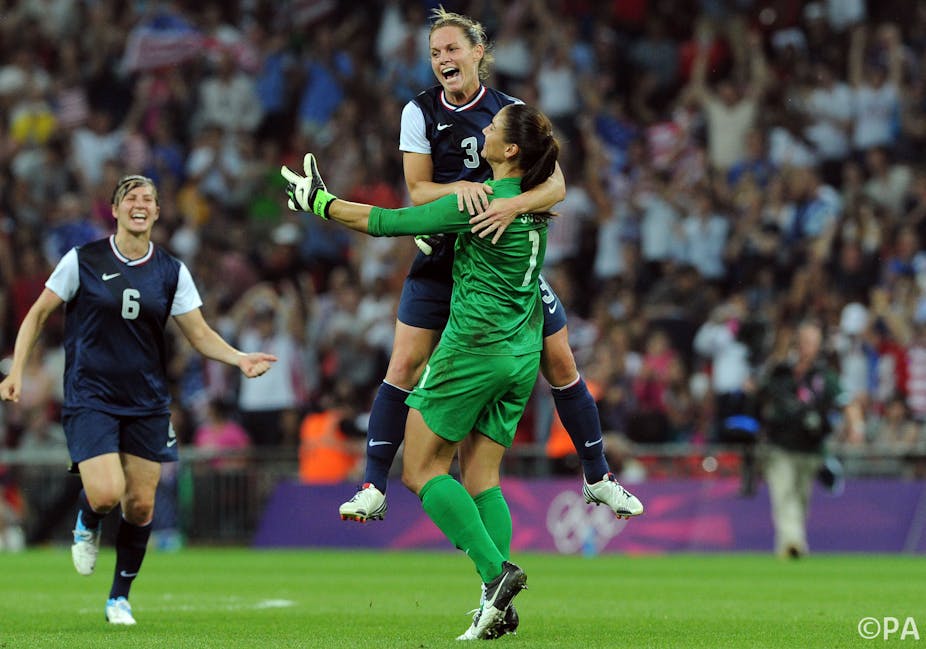Sepp Blatter, the 77-year-old president of FIFA, the international governing body of football, has put his foot in it – again. Having made suggestions in 2004 that women in sport should wear tight shorts and look attractive, he has now been accused of sexism for saying that Moya Dodd, the Australian woman recently appointed to the executive committee of FIFA, not only is good, but is good looking. As if her physical appearance, coded as sexual attraction, were of any relevance to her ability to be a member of football’s world governing body. Should we take any notice of Blatter’s remarks?
The president’s words have received a substantial amount of media coverage; more than the actual performance of much of women’s football - even at international level. Despite the irrelevance of Blatter’s musings, they certainly warrant public, visible, audible and critical analysis. It is the very routine nature of such trivialisation of women’s achievements in sport, whether on the pitch or as part of sport’s global governance and media coverage, which demand interrogation.
Blatter’s comments are part of a widespread sexualisation of women which reduces them to their appearance and to a set of sexualised properties. These discursive regimes are more complex and all- pervasive than the concept of sexism might suggest. And the very ordinariness of Blatter’s taken-for-granted assertions, which might be dismissed by some as a joke, make the culture of which they are part even more troubling.

Some commentators have noted that Moya Dodd herself did not criticise Blatter but emphasised the achievement of women: from a situation only a year ago when there were no women on the executive there are now three. This is progress, but women in sport may be reluctant to offer any criticism or negative comment because they are in a vulnerable position, or because of their relationship to the mechanisms of power which operate in sport, for example through networks of hegemonic masculinity. That Blatter could be so out of touch with the regulatory regimes of most systems of governance in the public and private sectors in contemporary neo-liberal democracies, is itself an assertion of this power.
Sport might appear to be a particular area of experience in which the centrality of flesh and body reduces all categorisation to one based on physical capabilities, leading to claims that gender matters more in sport than in any other field. Sport insists on dividing the world into male and female, and uses “gender verification” tests to ascertain certainty. There is little transgression of boundaries permitted in the governance of sport, whatever the fluidity is in other social and cultural domains. Prowess on the pitch, in the field or pool or in the ring, is often measured by physical strength. Although bodies matter in sport, social and cultural forces are always part of the mix.
In my book Sex Power and the Games (2012), I make the case that bodies and embodied practices on the field are closely allied to the organisations which regulate sport. In earlier research (Embodied Sporting Practices, 2009), I argue that sport does not simply reflect power relations and social forces in operation in the wider social and cultural terrain; it generates inequalities (as well as making more equal relationships possible in some situations of course). Sport’s capacities for creating opportunities can only be liberated by addressing some of the assumptions through which the networks of hegemonic masculinity persist and by deconstructing and exposing some of the routine, everyday assumptions which both trivialise and marginalise those positioned as outsiders – in this case women.

